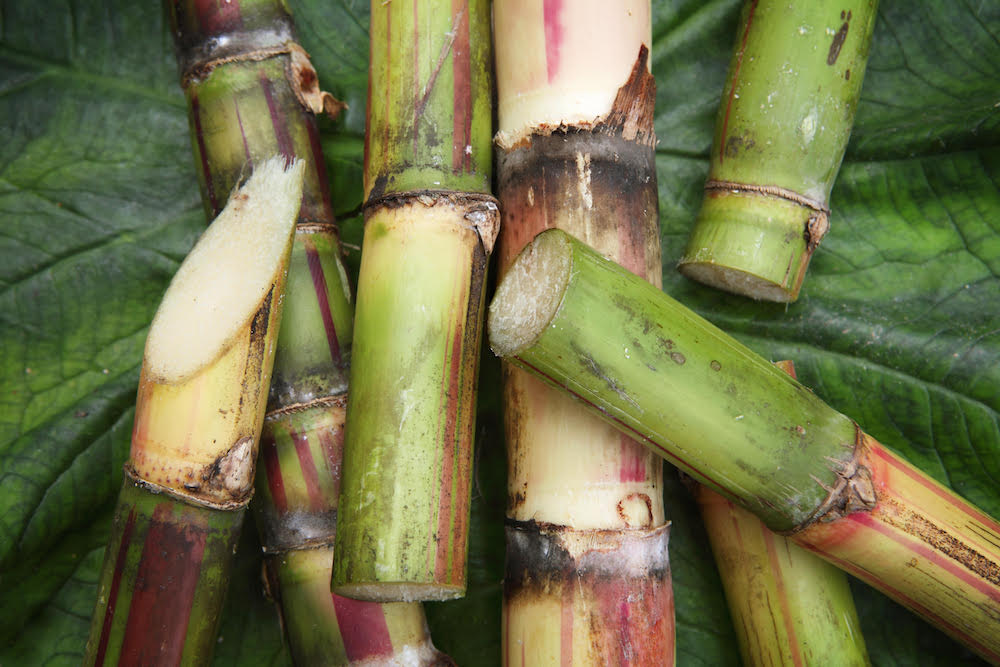How Sugar and Cane Are Used in the Production of Natural Sweeteners
How Sugar and Cane Are Used in the Production of Natural Sweeteners
Blog Article
Why Cane Sugar Processing Chemicals Are Vital for Modern Sugar Refining
The duty of cane sugar handling chemicals in contemporary sugar refining can not be overstated, as they are integral to enhancing both the efficiency of extraction and the overall quality of the final product. Agents such as phosphoric acid and particular flocculants are utilized to eliminate impurities, resulting in sugar that not only meets consumer expectations however likewise adheres to sector standards.
Duty of Processing Chemicals
The effectiveness of cane sugar processing pivots substantially on the critical application of processing chemicals. These chemicals play a pivotal function in improving the effectiveness and top quality of sugar removal and refining. From the initial phases of juice extraction to the final filtration actions, handling chemicals facilitate various important operations.
In the extraction phase, chemicals such as phosphoric acid and calcium hydroxide are employed to optimize the explanation process, aiding to remove pollutants and put on hold solids from the walking cane juice. This not only boosts the return but also guarantees the clarity of the end product. Furthermore, representatives like flocculants aid in the quick settling of contaminations, thus simplifying the total procedure.
As the processing developments, chemicals are utilized in decolorization and formation phases. Triggered carbon and ion exchange resins offer to get rid of color and smell, making certain that the polished sugar satisfies consumer top quality requirements. Eventually, the function of handling chemicals expands beyond operational performance; they considerably affect the sensory attributes of the end product, contributing to market competitiveness. Therefore, the precise option and application of these chemicals are vital for accomplishing optimal outcomes in walking stick sugar handling.
Trick Kinds Of Chemicals
Walking cane sugar processing relies upon a range of crucial chemicals that facilitate each phase of manufacturing. These chemicals play important functions in clarifying, lightening, and cleansing the sugar drawn out from cane.
One primary classification of chemicals includes flocculants, such as polyacrylamide, which help in the explanation process by promoting the gathering and settling of pollutants. Additionally, calcium hydroxide is frequently used to counteract acidity and assist in the removal of non-sugar components.
Bleaching agents, such as turned on carbon and sulfur dioxide, are made use of to decolorize the syrup, causing a more clear final item. These chemicals assist eliminate color substances that may influence the sugar's appearance and bankability.
Moreover, phosphoric acid serves as a pH regulator during the handling stages, making sure optimum conditions for the chemical activities included in sugar extraction and filtration.
Other essential agents consist of edta (ethylenediaminetetraacetic acid), which chelates steel ions that might catalyze unfavorable responses, and sodium hydroxide, which assists in pH control throughout the refining process. Jointly, these chemicals boost efficiency and make sure a high-grade walking cane sugar item.
Advantages for Sugar High Quality
Frequently ignored, using details processing chemicals significantly boosts the general quality of walking cane sugar. These chemicals play an essential role in refining procedures, making sure that the final item satisfies strict industry requirements for pureness and taste.

In addition, processing chemicals help in accomplishing a regular granulation and appearance, which are crucial for consumer acceptance. By managing the crystallization process, these chemicals make certain that the sugar crystals form consistently, bring about a more attractive item that liquifies well in different applications.
Furthermore, the usage of these chemicals can improve the shelf life of walking stick sugar by reducing moisture absorption and microbial growth. On the whole, the strategic application of handling chemicals is essential for delivering high-quality walking cane sugar that satisfies consumer expectations and industry demands.
Environmental Effect Considerations

Moreover, the energy-intensive nature of sugar refining, intensified by chemical use, commonly results in boosted hop over to here carbon discharges. This adds to climate adjustment and increases concerns pertaining to the sustainability of present refining practices. Additionally, the sourcing of these chemicals may involve techniques that threaten biodiversity, such as monoculture farming, which reduces the durability of farming ecological communities.

To minimize these effects, sugar refiners are increasingly discovering lasting alternatives and taking on best techniques that lessen chemical use. Applying strenuous ecological monitoring systems can aid make sure that the refining procedure aligns with environmental requirements and advertises biodiversity. Eventually, a well balanced technique that prioritizes both sugar high quality and environmental stewardship is essential for the long-term practicality of the sugar sector.
Future Fads in Refining
As the sugar industry comes to grips with the environmental obstacles related to conventional refining approaches, ingenious methods are emerging to boost both performance and sustainability. One substantial trend is the adoption of eco-friendly chemistry concepts, which prioritize making use of non-toxic, naturally degradable processing chemicals. This shift not only decreases ecological influence yet also addresses consumer demand for cleaner use this link manufacturing techniques.
An additional encouraging advancement is the execution of advanced filtration technologies, such as membrane layer splitting up and adsorption procedures. These strategies boost the clarity and quality of the sugar while lowering the volume of wastewater generated throughout refining. In addition, the assimilation of digital technologies, including IoT and AI, is transforming operational efficiency by making it possible for real-time monitoring and predictive upkeep, thus reducing resource waste.
Moreover, using spin-offs from sugar refining, such as bagasse and molasses, is obtaining traction. These products can be converted right into biofuels or value-added products, adding to a circular economic climate within the industry. Collectively, these patterns signal a change in the direction of more lasting practices that not only improve functional performance however also align with global sustainability objectives, making sure the future practicality of sugar refining.
Verdict
Walking stick sugar handling chemicals are important in modern-day sugar refining, substantially improving the performance and high quality of sugar removal. The critical usage of these chemicals not just enhances the purity and taste of the end product but likewise makes sure constant formation and structure. As the market significantly prioritizes sustainability, the fostering of environmentally-friendly handling representatives is most likely to form future patterns in refining, ultimately leading to greater high quality items and prolonged service life for consumers.

Inevitably, a balanced approach that focuses on both sugar high quality and ecological stewardship is essential for the long-term feasibility of the sugar sector.
Cane sugar handling chemicals are vital in contemporary sugar refining, dramatically enhancing the performance and top quality of sugar extraction.
Report this page